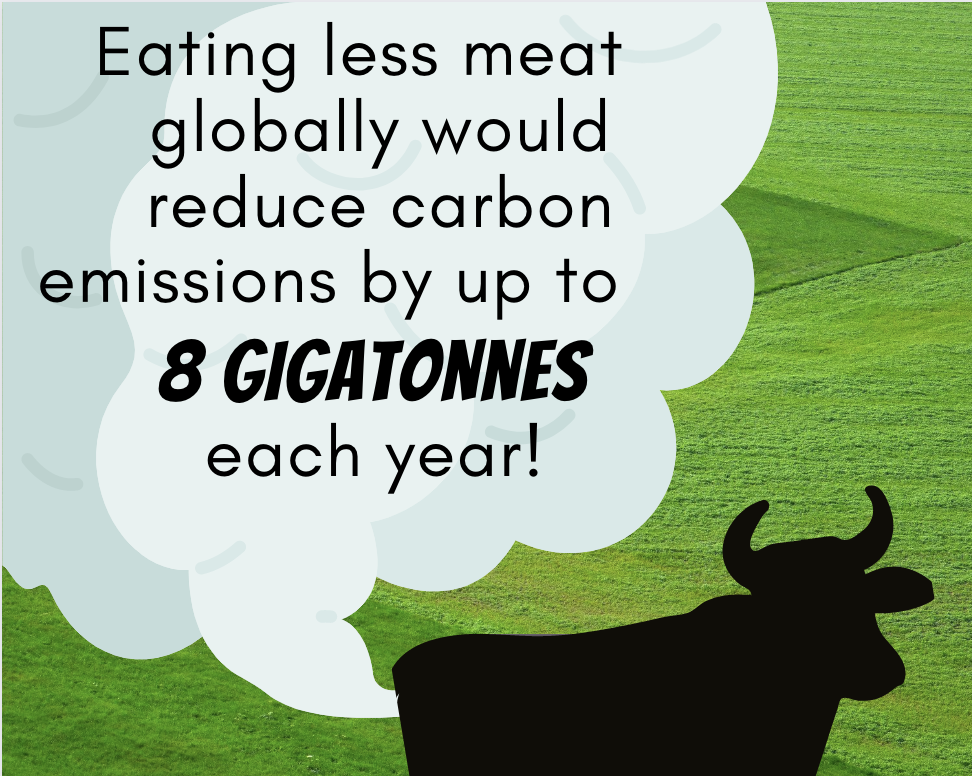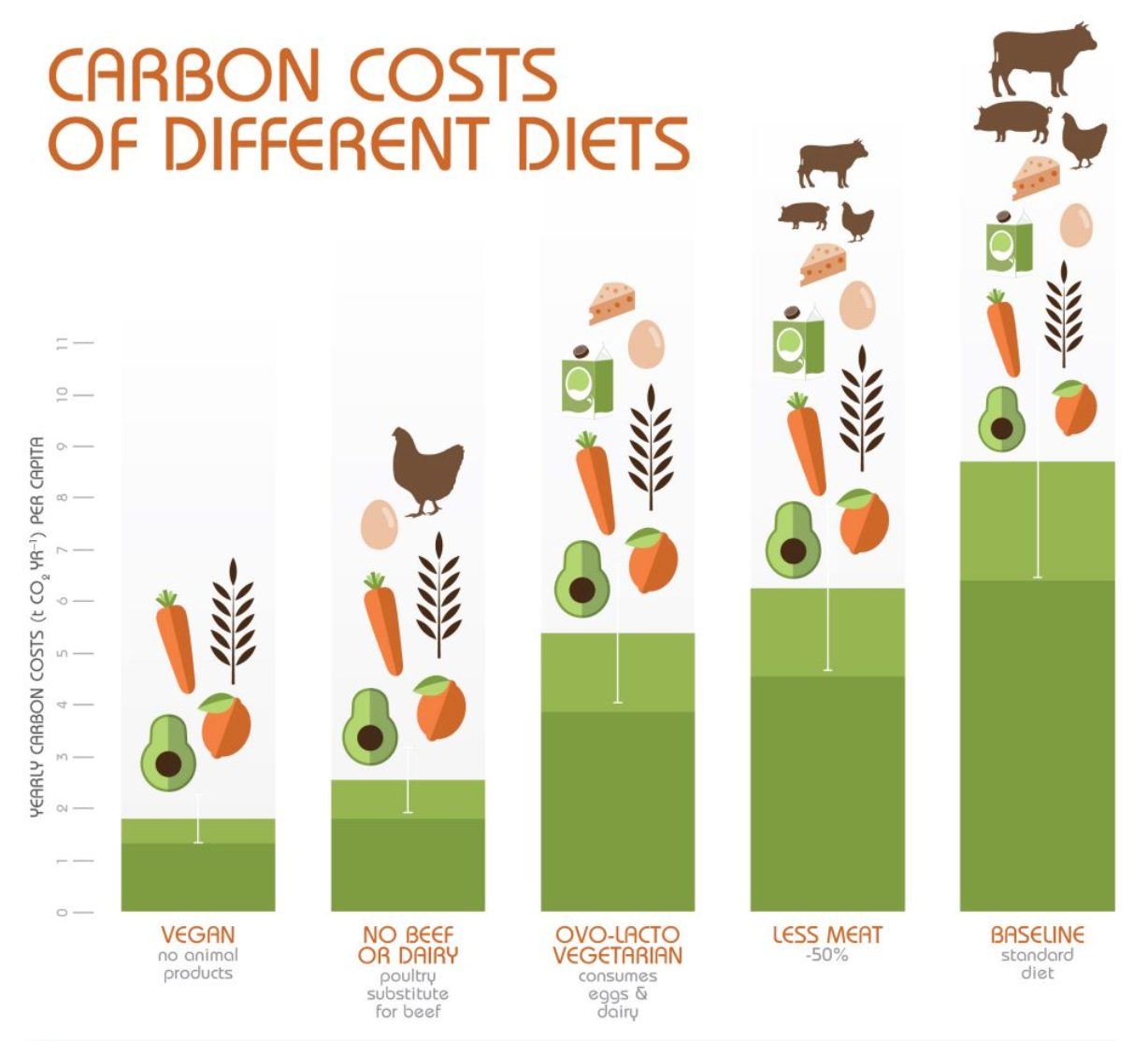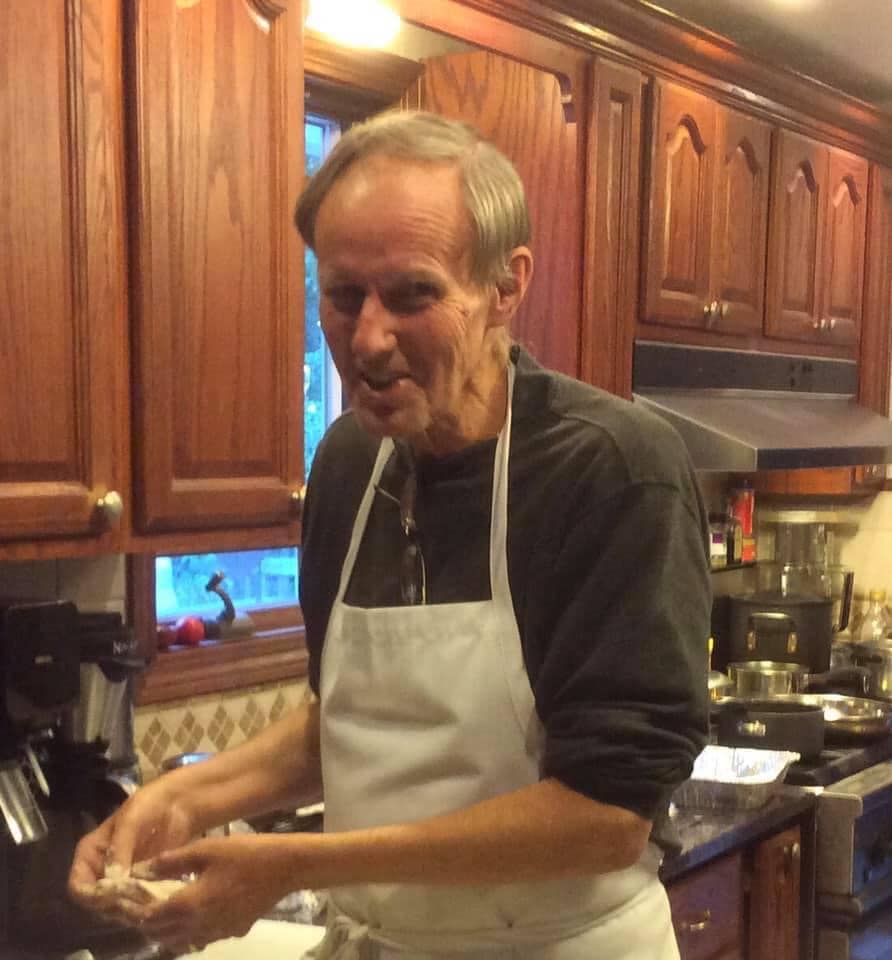Serving Up Climate Cuisine

Why I Stopped Eating Meat for the Sake of Our Planet
“Rabbit food!” my father scoffed. “You’re going to eat rabbit food!?”
“There are plenty of foods I can eat as a vegetarian,” I sighed into my phone as I trudged up an icy hill at the University of Vermont.
I understood why my father was so upset. You see, I was raised by a professionally trained chef. Dad’s meals were incredible displays of love and passion, but – as the grandson of an Irish immigrant – he was a meat-and-potatoes kind of man.
I never thought much about the types of foods I was eating growing up or what kind of impact they had on the world. That all changed at the malleable age of 21, when I made a choice. A choice that a number of folks in my life, including my father, called a huge mistake. I signed up for a class called The Ethics of Eating.
It turns out the course was pretty horrifying, but knowledge – not ignorance – is what leads to ultimate bliss. I simply had no idea about the impacts of eating animals until I started reading works by authors like Michael Pollan and David Foster Wallace.
My father’s retort to the moral argument against eating animals still rings in my ears as clearly as it did a decade ago: “Yes, Beck, we get it. Factory farming is terrible, but this is the way of the world. Let me eat my burger in peace.”
Shockingly, dear reader, animals hanging in shackles about to be slaughtered was not the most surprising thing I learned in The Ethics of Eating. It was the agricultural industry’s contribution to global warming that truly convinced me I needed to stop eating the delicious meats my father cooked for me.

While not as dramatically as the cows, pigs and chickens, we humans are also being killed by factory farming – albeit more slowly. Deforestation, the burning of fossil fuels, and water contamination are just a few of the detrimental environmental impacts of factory farming.
Not to mention the recent studies showing that rural communities who live near concentrated animal feeding operations (CAFOs) experience prolonged exposure to pesticides, leading to health issues such as acute pesticide poisoning. This issue disproportionally affects low income households and historically marginalized Black, Indigenous, and People of Color (BIPOC) populations.
The unchecked meat and dairy industries contribute to 21 percent of global fossil fuel emissions. In other words, a single pound of red meat requires over 900 gallons of water and emits 66 pounds of greenhouse gases. In comparison, one single pound of button mushrooms requires just two gallons of water to produce and emits only 0.07 pounds of greenhouse gases.

Sure beef is packed with protein, but people need a much larger variety of nutrients than the meat marketers like to try to tell us. In order to stay healthy, we require the right balance of macronutrients like fats, proteins, and carbohydrates. In terms of macronutrient ratios, mushrooms have 99% less saturated fat and 100 times more dietary fiber than beef.
But what was I going to say to my dad? He had dedicated a passion-filled life to cooking deliciously juicy animal products and now his only daughter wasn't going to eat his famous chicken marsala or mouth-watering beef stew. What was I going to say? I looked dismally at another email I had typed out to my father:
It took some time, but dad did listen to what I had to say about the environment and eating animals. Even though I didn’t have a word for it then, I was passionately telling my father about what many now call climate cuisine, or foods that are environmentally sustainable.
Dad even started making some of his own vegetarian dishes like eggplant parmesan and vegetable stir fry. Although he never stopped eating meat, I’m glad dad supported my switch to a more climate-friendly diet and found ways to make more sustainable choices for himself and his family in the process.
To learn more about how sustainable crops are used in similar climate zones around the world, check out the podcast Climate Cuisine from Whetstone Radio Collective.
